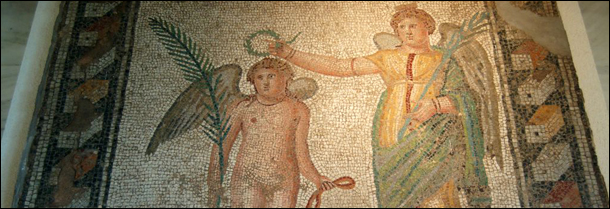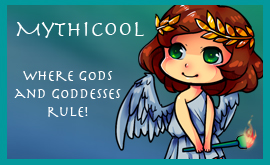

"The triumph, and the vanity,
The rapture of the strife-
The earthquake voice of Victory,
To thee the breath of life"
Lord Byron
In these four lines the poet captures the essence of an Olympic athlete. This article expands on those lines and explores the Games from an ideological perspective since the historical perspective is well-documented.
'The triumph'
Olympic athletes compete in the Games to display their arete ('excellence') to their compatriots and to the wider world.
The ancient competitors, who were wholy Greek, sought to emulate the heroic qualities of the Homeric warriors. This includes such estimable excellences as the strength of Ajax, the vigour of Achilles, the instinct of Odysseus and most of all the aristos ('best' or 'moral compass') of Diomedes.
Modern athletes, who live in an age of technology, seek to eclipse records that are set against the clock and the measuring tape in, what can be described as, an exacting excellence. They too, though they may not be aware, also strive towards the estimable excellences of the Homeric warriors.
'The vanity'
One of the principal motivations for athletes to display their excellence is the priceless prize of kleos aphthiton ('undying glory').
In a time when poetry enjoyed pride of place in the Greek psyche, the glory at the Games was instituted in and commemorated by celebratory odes that venerated the victor and his exploits and also delved into myth-making by tracing back the victor's ancestry to a demigod or a hero. Many of these odes lived beyond the lifetime of their protagonist and were held in the highest regard by the family and the community from which the protagonist came.
In modern times, with its inexhaustible media coverage and its rapacity for celebrity, athletes can attain worldwide glory within seconds of their achievements and without the need for extravagant exaggeration. This glory can be very demanding on the victor and its longevity is often linked to his or her marketability in an age of consumerism.
Only Time can tell if ancient and modern athletes attain 'undying' glory but their efforts are not in vain because their actions inspire others to achieve greatness and go one step further or one second faster.
'The strife'
Excellence is achieved through eris ('strife'), a struggle with the psychological and physical self, as well as with external factors and competitors.
In its infancy, the Olympic Games was an exclusive affair with every athlete sharing a common blood, language, religion and customs that identified them as being 'Greek'. The Games brought Greek people together from their various geographical locations to aid and foster a community spirit, which was constantly tested by the Greek propensity to function agonistically towards one another. In fact, the agon ('contest') was a dominant feature of Greekness and it encouraged a highly competitive culture in which individuals believed in one-upmanship and each geographic polity sought to exhibit superiority over another in a perpetual rivalry.
In Hesiod's Works and Days, the poet explains that the goddess of Strife, Eris, has two personalities; one that is cruel and another that is kind. The former 'fosters evil war and battle' and it is destructive to humans. The latter, sought for by athletes, is constructive to humans because it sets people on the path to excellence by encouraging them to better themselves and their communities.
'[Good Strife] stirs up even the shiftless to toil; for a man grows eager to work when he considers his neighbour, a rich man who hastens to plough and plant and put his house in good order; and neighbour vies with his neighbour as he hurries after wealth. This Strife is wholesome for men. And potter is angry with potter, and craftsman with craftsman, and beggar is jealous of beggar, and minstrel of minstrel.'
Athletes strive towards excellence by working through gruelling training regimes and by following special dietary plans, as well as competing against their rivals in challenges, competitions and championships. On the path to the Games, whether in ancient or modern times, Strife is an athlete's best friend and constant companion.
'The breath of life'
The Olympic Games is the most important religious festival in the world and it supasses all other religious festivals or pilgrimages in the human experience because it celebrates human excellence and human progress in the physical, mental, moral and spiritual realms.
Although it began as a wholy Greek institution, the Olympics ultimately became the international phenomenon it has because it brought people together in recognition of their shared identity and destiny and their devotion to Victory.
And finally, a word about Victory.
She is present during the Games and she bestows meaning and purpose to life and her earthquake voice, as personified by the cheering crowds and the fanfare, gives to thee the breath of life.
Olympic Games Exellence Glory Strife
















































Quote of the day